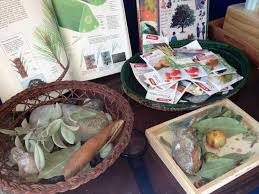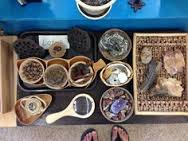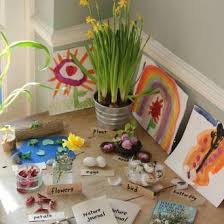From 13-21 August Day One will be celebrating Science Week! It’s an opportunity to introduce Australia’s youngest minds to scientific thinking, and to set the foundations for a lifetime of discovery and learning.
This year’s theme is DRONES, DROIDS AND ROBOTS
 The theme will centre on the real-world application of autonomous technologies in areas including agriculture, mining, manufacturing, medicine and space and deep ocean exploration. Of course, we will also look at how this technology has transformed our day-to-day lives – from robot vacuum cleaners and lawn mowers to automated pool cleaners.
The theme will centre on the real-world application of autonomous technologies in areas including agriculture, mining, manufacturing, medicine and space and deep ocean exploration. Of course, we will also look at how this technology has transformed our day-to-day lives – from robot vacuum cleaners and lawn mowers to automated pool cleaners.
Why Science?
The federal government recently released the 2015 Intergenerational Report, which shows (among other things) that Australia needs to invest in the areas of science, technology, engineering and mathematics in order to advance as a nation.
Day One is committed to providing a science curriculum that inspires young minds. A love for science generally starts young, and we want to give children the confidence to pursue their interests. Our founder is a scientist with multiple degrees in geology and applied science, and truly understands the value and enjoyment of a love of science that has led to a very rewarding career across many countries.

How You Can Get Involved
We are currently inviting Day One parents who work in science and technology to come in and introduce themselves during Science Week.
Think of it as show and tell. These are always great interactive learning experiences that we follow up with additional learning experiences in the weeks that follow.
Sign-up sheets with available sessions are located in your child’s room for you to choose your time. We can’t wait to hear from you!
There are so many wonderful events happening in Brisbane to celebrate Science Week with fun and interactive activities for the whole family. Find out the details here: Science Week Activities

Science Week – Making Learning Fun
Science in Early Childhood is about active engagement with objects and events in the real world. Children express wonder and interest in their environment (EYLF L.O.4.1). Here are some of the ways we are going to encourage your child’s natural curiosity during Science Week.
Systematic investigation to test children’s ideas
We can engage children in simple investigations by making predictions, experimenting, classifying, drawing conclusions and recording their observations:
- Float and Sink
- Soft and Hard
- Hot and Cold
- Sweet and Salty
- Wet and Dry
- Living and non-living
- Smooth and rough
These are recorded on paper or the black board to show conclusions and knowledge.
Opportunity for surprise and discrepancy
We can develop the children’s understanding through the unexpected. This encourages growth of thinking and reasoning skills “Cognitive Conflict”. The discrepancies between what they believe might happen and what they actually observe.
- Building with recycled material – what can I make?
- Using clay instead of play-dough – it dries hard. Why?
- Feely boxes with hidden objects – what is inside?
- Colour mixing with tones – dark and light
- Coloured dye in water – what happens?
- Blowing a ping-pong ball with a straw – how far can I blow?
- Using technology on the ipad
- Watch the balloon fly when you let out the air
Using the senses
We can extend their sensory understanding about sound, textures, taste and smell. Encouraging them to describe what they observe, find contrasts and using properties.
- Goop
- Shaving cream
- Wet sand in containers
- Making ice sculptures
- Soapy water making bubbles
- Making bubble mix – finding things to use to blow bubbles
- Painting to different types of music
- Blindfold games – finding your partner by sound
- Blindfold games – name that smell (use herbs / fruits)
- Blindfold games – name that taste (use fruit / jelly / custard)

Classifying
We can encourage them to think about concepts, materials, actions, people and events, thus developing their understanding of properties and function.
- Things that are metal – using a magnet
- Things that are the same – finding round things, square things
- Colour – matching, sorting, identifying and labeling
- Relationships – families. (animal families, skin colour, hair colour)
- Big, bigger, biggest – block towers
- Low and high – making piles
- Meal times – healthy foods / sometimes foods
- Cutting fruit – whole, half, quarter
- Songs that have finger play
- People we know – What job do they do? Where do they work?
- Body parts – what can different parts of our body do and how?
- Body parts – copy movements “Simon says”
- Things to match and put together
- Small objects with tongs – use tongs to sort same / different develop F/Motor
Experimenting
We can encourage them to experiment in order to solve problems, ask them questions!
- Use a juicer to change an apple into apple juice
- Put water in the freezer to make ice
- Make coloured ice to draw with
- Bake a cake or make some jelly
- Colour mixing – what colour can we make?
- What happens when we put rice in a balloon and blow it up?
- Parachute game – what happens when we put balloons in the parachute and bounce them?
Natural and physical world
We can encourage children to gather knowledge about their natural and physical world.
- Making shadows
- Melting ice cubes in the sun
- Gathering herbs from the garden
- Looking at the body – where does our food go when I eat?
- Looking at an x-ray (need a light box)
- Static – rubbing a balloon on our head watch our hair stick up
- Looking at rocks, size, colour and shape (collect and play)
- Looking at sticks, where do they come from which tree?
- Looking at plants – how do they eat? – white cut flower placed in a vase of red dye becomes red why??
- Using a torch in the dark – what can I see?
- What can I see in a magnifying glass? Why is it bigger?
- Making coloured viewers with cellophane
- Looking at worms in the garden
- Using a camera taking their own photos







